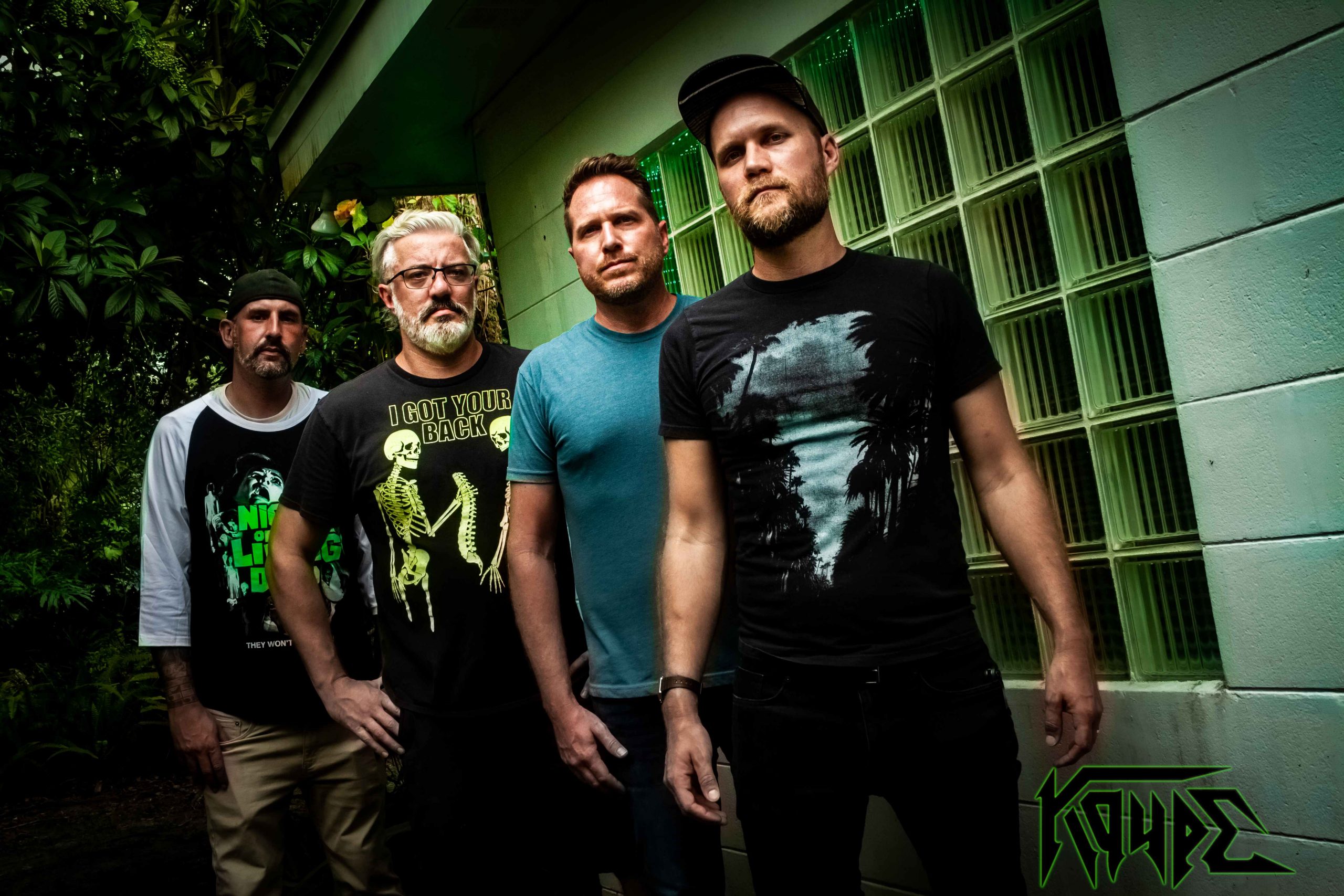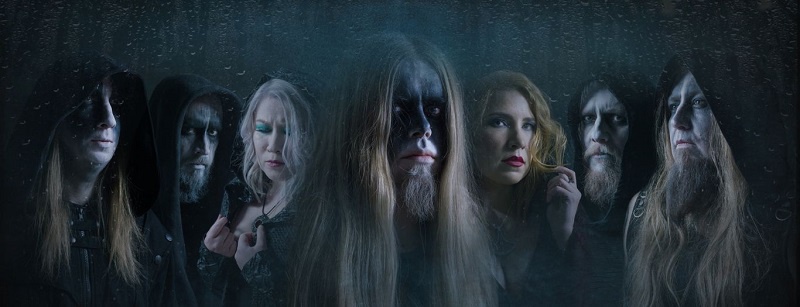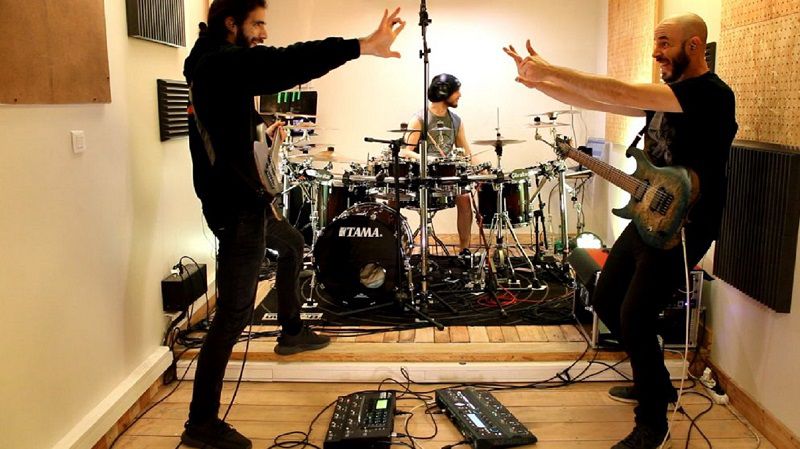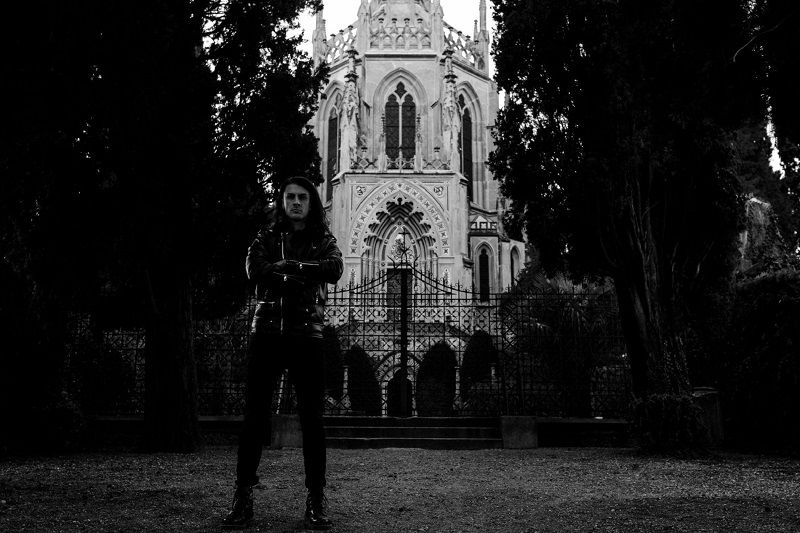An Interview with Brett Walker of Kaupe
6 min read
Instrumental Metal: A ‘Dissonance’ is Here
By Justin Smulison
Instrumental metal in the winter often feels right. “Cognitive Dissonance”, the sophomore album by Kaupe, just bursts with energy that glistens with recurring whacky, proggy and funky vibes, making it music for all seasons. The Florida quartet independently released the album last week and if you like a lot of color to your voice-free metal, then this is the band for you to support.
The band’s 2018 debut, “The Depths” brought nation-wide recognition and shows with Andrew W.K. and Virgil Donati, among others. Kaupe’s sound is reminiscent of Planet X and Chad Smith’s Bombastic Meatbats, but embraces its metal edges a bit more. “Cognitive Dissonance” further broadens and defines their sound and guitarist – each member has several opportunities to show off their technical and creative abilities.
Kaupe founder Brett Walker took some time to discuss the new 11-song LP and the challenges and excitement of creating innovative lyric-less metal.
What inspired you to play this unique brand of instrumental metal?
Hey Justin, thanks for having us! Truth be told we didn’t actually set out to be an instrumental band, and tried out quite a few singers. We also tried a second guitar player, so we’ve had a few lineup changes to get to the one we have today. I think after Marc Larabel (drums) and I wrote our first song “H. Werewolf,” the key takeaway was that it was mood-driven. We definitely knew we were on to something and tried to keep that mood alive throughout the writing process.
Patrick Ross (keys) definitely brought a whole different landscape to the band, and definitely made our sound bigger and even more emotionally driven. I’ve always felt that Pete Medrano (bass) always knew the perfect bass parts to play at any given moment. You put all these elements together and you have Kaupe.
When writing, do you hum a lead or melody and then play it out on a guitar?
Well, writing happens in all different ways. But this is a very good observation though, on your part; a lot of the guitar riffs and melodies for this album were in my head. Actually the opening riff for the first song we ever wrote was in my head as I was trying to recover from a hangover [laughing].
Sometimes though, I’ll just be playing guitar by myself and stumble onto something. Lately we’ve been taking a different approach where the initial riff is less polished and we jam on it to see where it goes. We’re always trying to come up with new ways to write and keep things fresh.
I imagine that happened for the title track.
I do hate to burst your bubble, but the skeleton for “Cognitive Dissonance” was actually just something I came up with playing with a click track and had a lot of energy that day! It is very important to point out that from point A to B the song morphs into what is the finished product, and I cannot credit my fellow bandmates enough in adding their own creativity. They always know what to play, and think I’ve things I’d never think of.
Cognitive Dissonance requires a few listens to fully absorb all the dynamic parts and passages, but it never feels like “work” to zero in on it.
That’s very flattering, and I’m glad you dig! I think this album was more of a holistic effort, and Patrick (keys) was in the band from start to finish of the writing process, as opposed to the first album where we had six songs written and we were fitting his key parts in. Our whole goal first and foremost was to outdo what we did previously and to be catchier, more explosive, more epic, more everything.
We tried our best to create a timeless album that would present something new with every listen. It was definitely a labor of love from start to finish.
My standouts are the title track, “Luck of the Unlucky,” and “Cop Caller” – they all seem to have their own personalities, which is quite a feat on an instrumental album. What was it like to record those?
The title track is nod to all the more intense bands we like, and we wanted that one to hit you like a freight train from start to finish. “Luck of the Unlucky” was written around the intro keyboard riff. When I first heard him play it I said, “uh what the fuck was that? That is going in a song now!”
“Cop Caller’s” initial riff ideas were stuff I came up with on guitar, but my God, did the boys ever add to it. I still think it’s one of Patrick’s best performances, and Marc (drums) never ceases to amaze me how musical he is with his playing while maintaining technicality…the guy is relentless on this album. Pete’s always there to anchor it all and knows when to play technical and when to fatten up the sound rounding out everything.

How do the themes and songs reflect the times in which they are composed?
The songs were already written before COVID ever happened so that didn’t really have any bearing on themes and songs. I think the album really reflects a point in time when we were firing on all cylinders. Sure, there were experiences we had during those times that influenced our writing, but I think we were just trying to write songs that were honest to us and what we’re into without trying to really fit in anywhere.
Generally speaking, do you think metal bands who write about themes of “isolation” and “illness” in 2021 risk producing something too dated or niche?
I think there’s clever ways to write about anything. I think it could be really cool to write metaphorically about these times, and draw inspiration from illness and isolation without blatantly talking about COVID times.
What has your experience been during COVID?
Luckily most of the guys, excluding myself, were able to keep their jobs throughout COVID. At first I loved the free time to record everything but the drums (recorded by Derren Carter of 8Arms Studio in Winter Park, FL), and mix Cognitive Dissonance. Outside of that there were a ton of hardships to overcome, and overall it was pretty miserable. Things are slowly getting back to normal and we’re all looking forward to better days.
What advice or insight do you have for bands or musicians who are trying to keep on amid this new wave of COVID in many parts of the U.S. and the world?
Keep on truckin’! We will all be out of our bomb shelters someday.
What have been your best experiences so far as a unit?
Well…playing live shows when they existed. I think we’re all going to look back at making this record as one of our best experiences.
How did Florida’s local and underground scenes influence your music?
Marc and I actually have a history of playing in bands together since 1999, or so. Orlando has always had an eclectic music scene. Pretty much anything goes, and there’s a scene for it. I think the inherent nature of being in somewhat of a musical melting pot heavily influenced us. Any musician worth their salt should have many influences from many different genres of music.
What advantages and disadvantages are there to self-releasing your music?
Advantages: nobody reaches into your pocket for any sale of your merchandise. You make 100% of the decisions.
Disadvantages: A lot more work for yourself, nobody to split initial album costs with, less publicity, people tend to overlook bands because they are not on a label.
Check out the trailer for Cognitive Dissonance, which is available now.
Walker also plays lead guitar in Junior Bruce, which BAZ reviewed in 2020.
Drummer – Marc Larabel
Keys – Patrick Ross
Bass – Pedro Medrano
Guitar – Brett Walker
Facebook
Bandcamp
YouTube
Instagram
**Please support the underground! It’s vital to the future of our genre.**
#WeAreBlessedAltarZine
#TheZineSupportingTheUnderground



